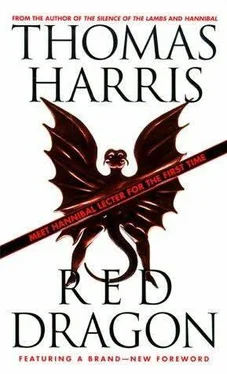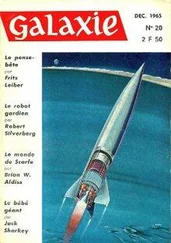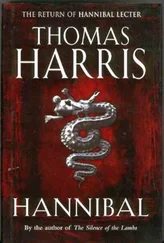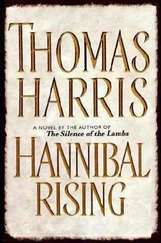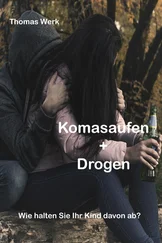The child's face brightened. The big boys had helped him with this. He wanted to please. He collected himself.
"Cunt Face," he said.
# # #
Three days later Grandmother Dolarhyde called for Francis at the orphanage and took him home with her. She began at once to help him with his speech. They concentrated on a single word. It was "Mother."
# # #
Within two years of the annulment, Marian Dolarhyde met and married Howard Vogt, a successful lawyer with solid connections to the St. Louis machine and what was left of the old Pendergast machine in Kansas City.
Vogt was a widower with three young children, an affable ambitious man fifteen years older than Marian Dolarhyde. He hated nothing in the world except the St. Louis Post -Dispatch , which had singed his feathers in the voter-registration scandal of 1936 and blasted the attempt in 1940 by the St. Louis machine to steal the governorship.
By 1943 Vogt's star was rising again. He was a brewery candidate for the state legislature and was mentioned as a possible delegate to the upcoming state constitutional convention.
Marian was a useful and attractive hostess and Vogt bought her a handsome, half-timbered house on Olive Street that was perfect for entertaining.
Francis Dolarhyde had lived with his grandmother for a week when she took him there.
Grandmother had never seen her daughter's house. The maid who answered the door did not know her.
"I'm Mrs. Dolarhyde," she said, barging past the servant. Her slip was showing three inches in the back. She led Francis into a big living room with a pleasant fire.
"Who is it, Viola?" A woman's voice from upstairs.
Grandmother cupped Francis' face in her hand. He could smell the cold leather glove. An urgent whisper. "Go see Mother, Francis. Go see Mother. Run!"
He shrank from her, twisting on the tines of her eyes.
"Go see Mother. Run!" She gripped his shoulders and marched him toward the stairs. He trotted up to the landing and looked back down at her. She motioned upward with her chin.
Up to the strange hallway toward the open bedroom door.
Mother was seated at her dressing table checking her makeup in a mirror framed with lights. She was getting ready for a political rally, and too much rouge wouldn't do. Her back was to the door.
"Muhner," Francis piped, as he had been taught. He tried hard to get it right. "Muhner."
She saw him in the mirror then. "If you're looking for Ned, he isn't home from…"
"Muhner." He came into the heartless light.
Marian heard her mother's voice downstairs demanding tea. Her eyes widened and she sat very still. She did not turn around. She turned out the makeup lights and vanished from the mirror. In the darkened room she gave a single low keening that ended in a sob. It might have been for herself, or it might have been for him.
# # #
Grandmother took Francis to all the political rallies after that and explained who he was and where he came from. She had him say hello to everyone. They did not work on "hello" at home.
Mr. Vogt lost the election by eighteen hundred votes.
At grandmother’s house, Francis Dolarhyde's new world was a forest of blue-veined legs.
Grandmother Dolarhyde had been running her nursing home for three years when he came to live with her. Money had been a problem since her husband's death in 1936; she had been brought up a lady and she had no marketable skills.
What she had was a big house and her late husband's debts. Taking in boarders was out. The place was too isolated to be a successful boardinghouse. She was threatened with eviction.
The announcement in the newspaper of Marian's marriage to the affluent Mr. Howard Vogt had seemed a godsend to Grandmother. She wrote to Marian repeatedly for help, but received no answer. Every time she telephoned, a servant told her Mrs. Vogt was out.
Finally, bitterly, Grandmother Dolarhyde made an arrangement with the county and began to take in elderly indigent persons. For each one she received a sum from the county and erratic payments from such relatives as the county could locate. It was hard until she began to get some private patients from middle-class families.
No help from Marian all this time – and Marian could have helped.
Now Francis Dolarhyde played on the floor in the forest of legs. He played cars with Grandmother's Mah-Jongg pieces, pushing them among feet twisted like gnarled roots.
Mrs. Dolarhyde could keep clean wash dresses on her residents, but she despaired at trying to make them keep on their shoes.
The old people sat all day in the living room listening to the radio.
Mrs. Dolarhyde had put in a small aquarium for them to watch as well, and a private contributor had helped her cover her parquet floors with linoleum against the inevitable incontinence.
They sat in a row on the couches and in wheelchairs listening to the radio, their faded eyes fixed on the fish or on nothing or something they saw long ago.
Francis would always remember the shuffle of feet on linoleum in the hot and buzzing day, and the smell of stewed tomatoes and cabbage from the kitchen, the smell of the old people like meat wrappers dried in the sun, and always the radio.
Rinso white, Rinso bright
Happy little washday song.
Francis spent as much time as he could in the kitchen, because his friend was there. The cook, Queen Mother Bailey, had grown up in the service of the late Mr. Dolarhyde's family. She sometimes brought Francis a plum in her apron pocket, and she called him "Little Possum, always dreamin'." The kitchen was warm and safe. But Queen Mother Bailey went home at night…
# # #
December 1943.
Francis Dolarhyde, five years old, lay in bed in his upstairs room in Grandmother's house. The room was pitch dark with its blackout curtains against the Japanese. He could not say "Japanese." He needed to pee. He was afraid to get up in the dark.
He called to his grandmother in bed downstairs.
"Aayma. Aayma." He sounded like an infant goat. He called until he was tired. "Mleedse Aayma."
It got away from him then, hot on his legs and under his scat, and then cold, his nightdress sticking to him. He didn't know what to do. He took a deep breath and rolled over to face the door. Nothing happened to him. He put his foot on the floor. He stood up in the dark, nightdress plastered to his legs, face burning. He ran for the door. The doorknob caught him over the eye and he sat down in wetness, jumped up and ran down the stairs, fingers squealing on the banister. To his grandmother's room. Crawling across her in the dark and under the covers, warm against her now.
Grandmother stirred, tensed, her back hardened against his cheek, voice hissing. "I've never sheen…" A clatter on the bedside table as she found her teeth, clacket as she put them in. "I've never seen a child as disgusting and dirty as you. Get out, get out of this bed."
She turned on the bedside lamp. He stood on the carpet shivering. She wiped her thumb across his eyebrow. Her thumb came away bloody.
"Did you break something?"
He shook his head so fast droplets of blood fell on Grandmother's nightgown.
"Upstairs. Go on."
The dark came down over him as he climbed the stairs. He couldn't turn on the lights because Grandmother had cut the cords off short so only she could reach them. He did not want to get back in the wet bed. He stood in the dark holding on to the footboard for a long time. He thought she wasn't coming. The blackest corners in the room knew she wasn't coming.
She came, snatching the short cord on the ceiling light, her arms full of sheets. She did not speak to him as she changed the bed.
Читать дальше
